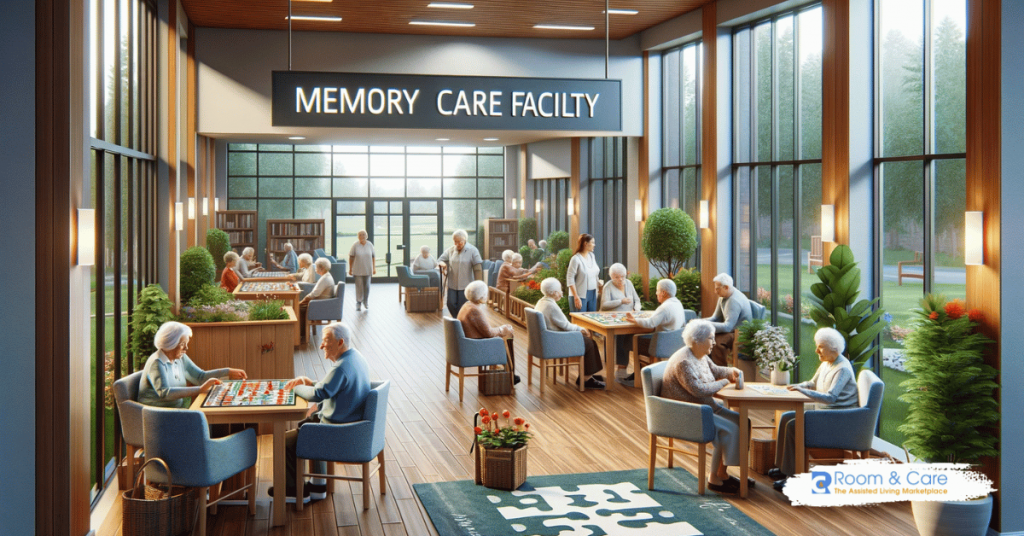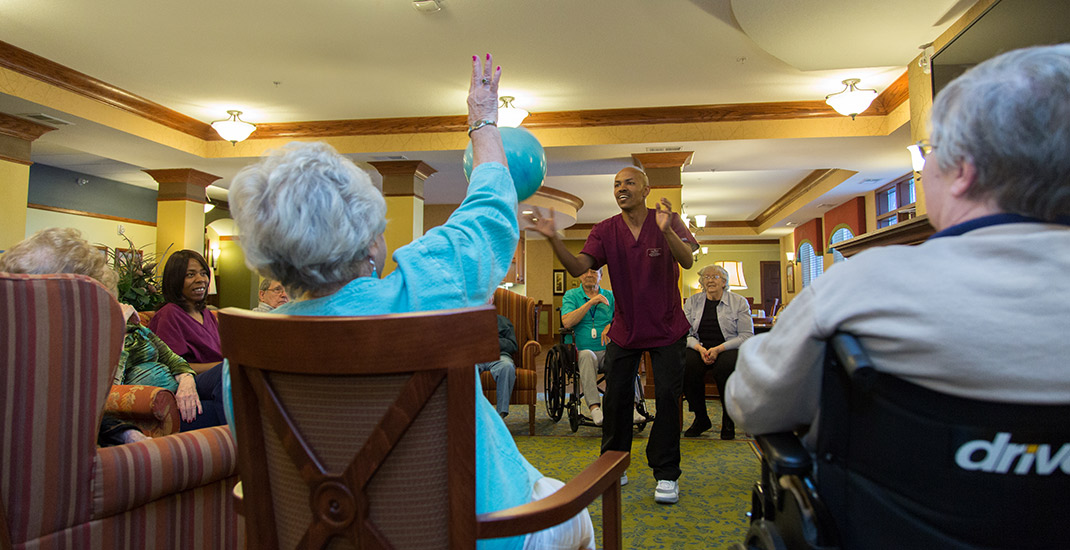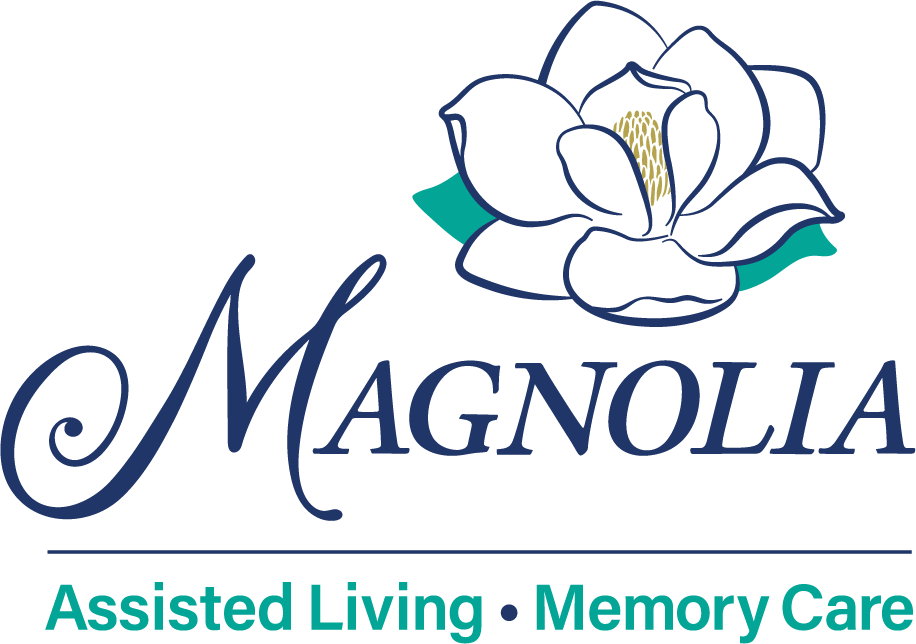Charlotte Memory Care: Safe and Secure Setting for Seniors
Charlotte Memory Care: Safe and Secure Setting for Seniors
Blog Article
What to Expect in Memory Treatment: A Comprehensive Guide to In-Home Provider
As households come to terms with the obstacles of caring for somebody with memory loss, the world of in-home solutions offers a lifeline of assistance and specialized care. Understanding what to expect in memory care is crucial for making sure the health of both the private with memory disability and their caretakers.
Daily Activities and Regimens
Involving in structured daily tasks and regimens is a basic component of providing quality take care of individuals in memory treatment facilities. These tasks are diligently developed to accommodate the certain needs of locals with cognitive disabilities, such as Alzheimer's illness or mental deterioration. Daily regimens play an essential duty in maintaining a sense of experience, security, and objective for individuals in memory treatment.

Furthermore, daily regimens aid individuals in memory treatment centers to really feel even more focused and much less anxious. Uniformity in activities and routines can reduce confusion and frustration, supplying a feeling of security and convenience. Caretakers and team member play a critical role in facilitating these activities, making certain that each resident receives individualized and compassionate treatment tailored to their one-of-a-kind choices and capacities.
Specialized Treatment Services
Within memory treatment centers, specialized treatment solutions are important to attend to the special needs and challenges dealt with by people with cognitive disabilities such as Alzheimer's disease or mental deterioration. These services are created to supply customized assistance that deals with the particular needs of homeowners dealing with amnesia. Specialized care solutions in memory treatment centers usually consist of individualized treatment plans, help with activities of day-to-day living, drug monitoring, and behavioral therapies targeted at enhancing lifestyle and lessening distress.
Furthermore, memory treatment centers generally supply organized programs and tasks especially designed to promote cognitive function and promote social interaction among residents. These tasks may include memory-enhancing workouts, sensory stimulation treatments, and memory therapy sessions. In addition, specialized treatment services typically entail regular tracking of locals' wellness and wellness by skilled employee that are furnished to take care of the distinct challenges connected with cognitive decline.
Precaution and Setting
Executing stringent precaution and developing a safe setting are extremely important top priorities in memory care centers to make certain the well-being and security of citizens with cognitive problems. Security in memory care starts with protected building design, including locked doors and kept track of access to stop citizens from roaming outdoors without supervision. Additionally, facilities frequently have alarm system systems and monitoring cameras to monitor homeowners and react promptly to any kind of emergencies. Inside, the setting is meticulously intended to minimize dangers, with handrails, get hold of bars, and non-slip flooring to stop drops. Furnishings is prepared to help with easy navigating, and potentially dangerous things are locked away or gotten rid of. Personnel obtain specialized training in taking care of emergency situations, de-escalating difficult habits, and making sure the security of locals in all times. Routine security analyses are performed to identify and deal with any kind of prospective hazards immediately. By focusing on precaution and maintaining a safe environment, memory care facilities aim to offer a encouraging and protective setting for individuals with cognitive impairments.
Communication and Engagement Techniques
With a concentrate on cultivating meaningful communications and boosting lifestyle, effective communication techniques play an essential function in sustaining people in memory treatment centers. Communication in memory care entails recognizing the distinct needs of locals that may have cognitive impairments like mental deterioration. Basic language, clear directions, and non-verbal signs such as motions and face expressions are essential devices for reliable interaction. Caretakers ought to come close to locals with persistence, compassion, and regard, developing an encouraging setting where people feel understood and valued.
Interaction methods are also important in memory care, assisting homeowners stay active, boosted, and attached to their surroundings. Charlotte Memory Care. By prioritizing tailored communication and engagement techniques, memory treatment facilities can enhance the general health and quality of life for their citizens.
Caregiver Support and Resources
Given the critical duty caretakers play in implementing reliable communication and interaction methods for homeowners in memory treatment centers, giving appropriate support and resources is important to ensure the wellness of both the caregivers and the individuals under their treatment. Caretakers in memory treatment setups typically face distinct difficulties that can impact their emotional and physical well-being. To address these difficulties, various support group and sources are offered to aid caretakers in giving the most effective feasible treatment.
One necessary type of support is caregiver education and learning and training programs. These programs outfit caretakers with the required skills and understanding to properly take care of the actions and signs and symptoms related to amnesia. In addition, support system use caregivers the chance to attach with others who are important site experiencing similar obstacles, supplying a sense of neighborhood and understanding.

Conclusion

Engaging in organized browse around this site daily tasks and regimens is an essential element of providing high quality care for people in memory care facilities.Within memory treatment centers, specialized treatment services are essential to address the one-of-a-kind needs and challenges faced by people with cognitive impairments such as Alzheimer's condition or dementia. Specialized treatment services in memory care centers typically include customized care strategies, help with tasks of everyday living, drug monitoring, and behavior therapies intended at boosting quality of life and reducing distress.
Given the important basics duty caretakers play in executing reliable interaction and interaction strategies for homeowners in memory treatment facilities, providing appropriate assistance and sources is crucial to make certain the health of both the caretakers and the people under their treatment. Daily activities, specialized treatment services, safety steps, interaction techniques, and caregiver assistance are essential parts of at home memory treatment.
Report this page